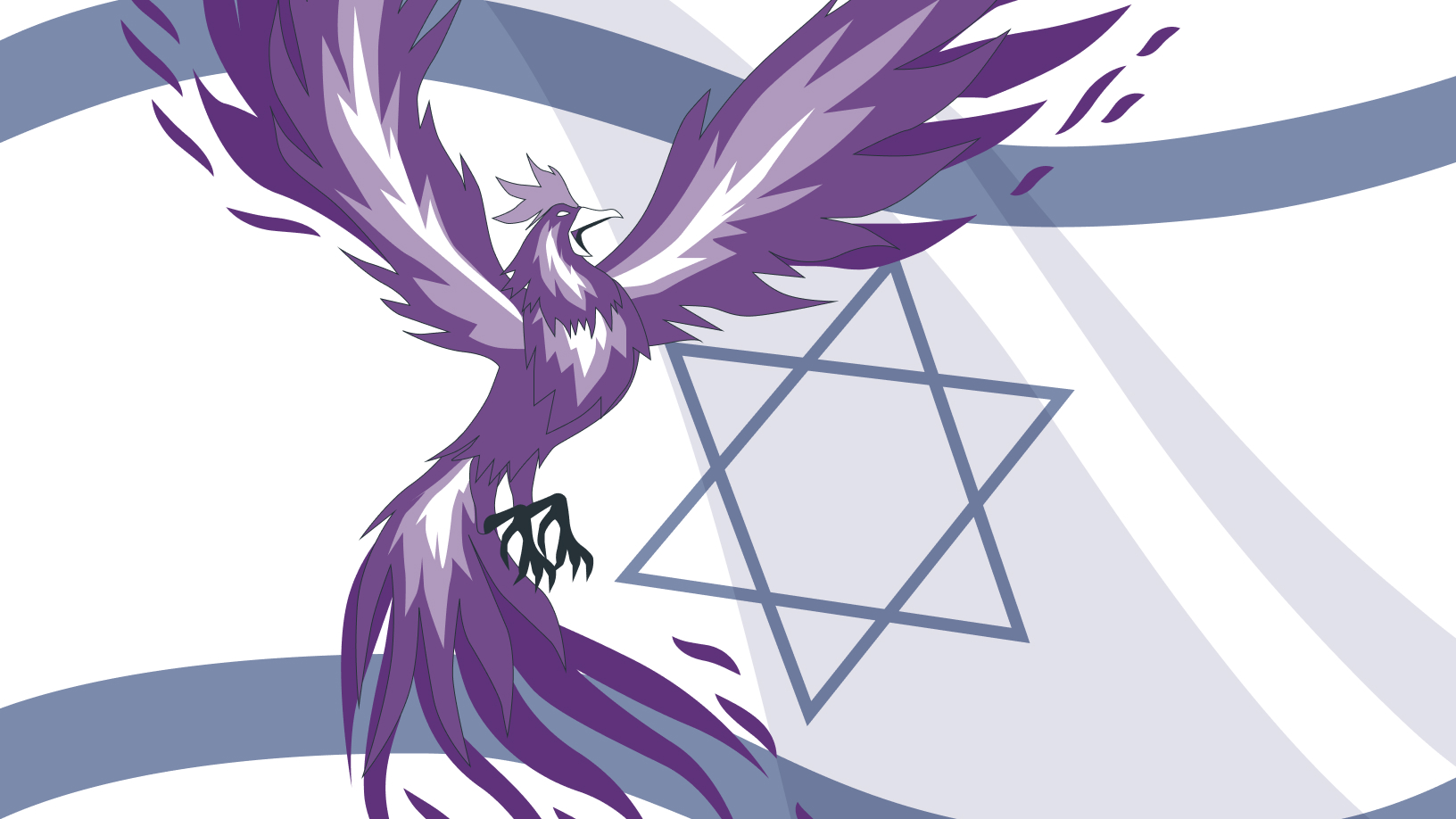
In Israel there has been a war for three months, which has never happened before. Since the formation of the state, Israel has not known so many civilian casualties — more than 1,200 killed, more than 250 hostages and dozens of missing people. For the first time, 135 thousand Israelis found themselves refugees in their own country. For the first time, the army, together with conscripted reservists, exceeded 500 thousand. Thousands of representatives of orthodox religious communities, who until now had largely avoided military service, volunteered to join the army for the first time.
The war is felt throughout the country not only in the form of regular raids, but also in everyday life: research and study at universities have stopped (students and teachers at the front), you have to wait six months for an appointment with a doctor (doctors are more needed at the front) , some government agencies are not working (employees are at war), small businesses that support Israel have lost clients (people have kept expenses to a minimum).
This material is a republication of a text by Olga Orlova, editor-in-chief of T-invariant, posted on Important Stories.
Universities and schools. “A third of students went to war”
In Israel there is no fixed start date for the school year. Traditionally, it begins in mid-October after a series of long holidays, the last of which is Simchat Torah. In 2023, this day fell on October 7. As soon as the news channels reported what happened on the Gaza border, tens of thousands of students realized that instead of classrooms, military bases awaited them. Most young Israelis enter universities after serving in the army, so they form the bulk of the reservists who are sent to the front in the event of hostilities.
“At our university, a third of the students went to war,” says Bar-Ilan University professor Elena Bunina. “The local students with whom I correspond are in a very bad emotional state — like everyone else here. Everyone has dead acquaintances, there are a lot of friends serving. From time to time we receive letters about the death of children among fellow teachers at our university. Grief is very, very close.”
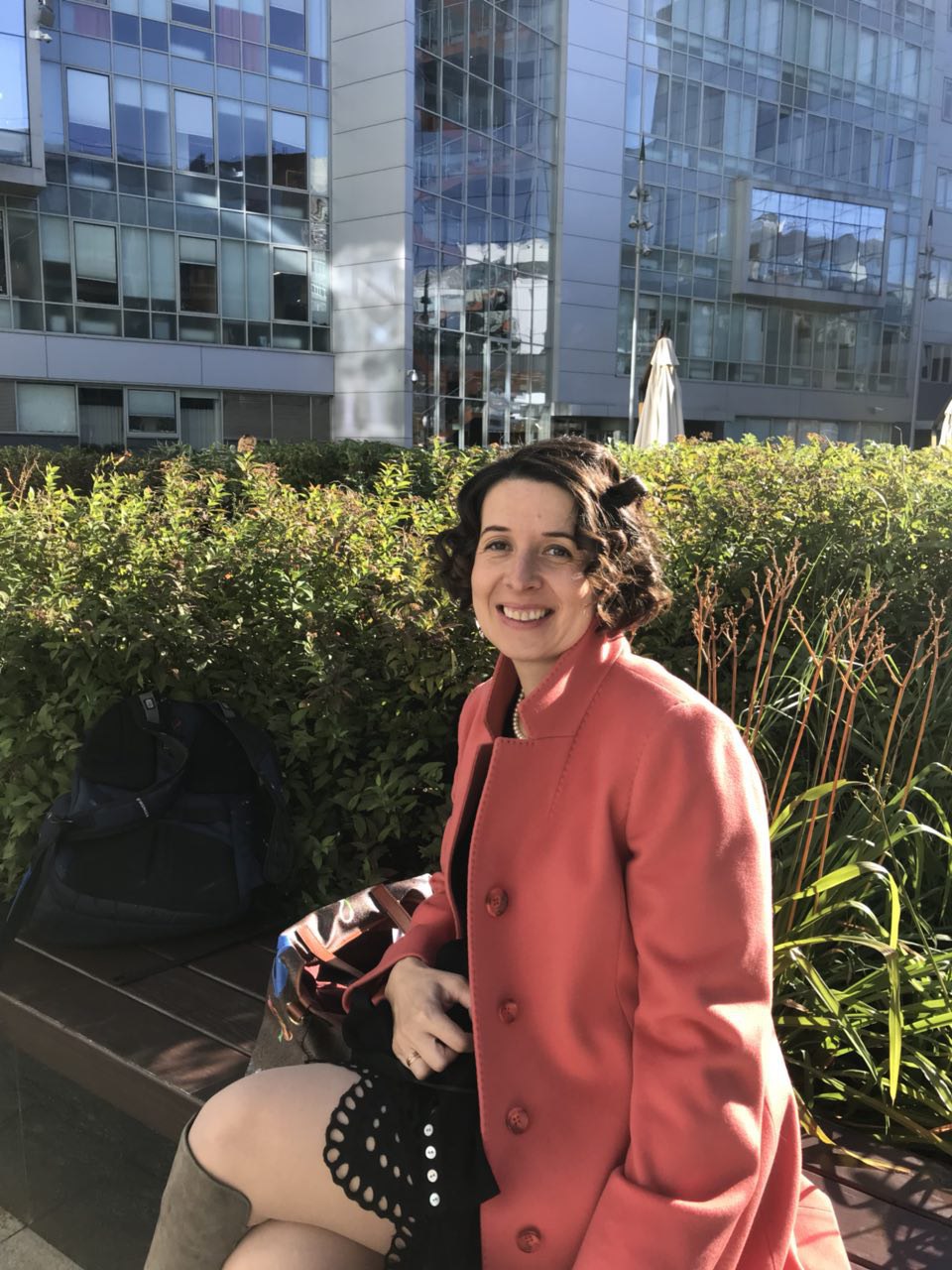
Elena Bunina, professor at Bar-Ilan University
“The Technion is empty,” says Yakov Krasik, head of the plasma physics laboratory. “There are almost no young people in our laboratory now: two are at the front, and one girl is in such a difficult psychological state that she cannot continue working. Three years ago, during the pandemic, we also regularly received news in the university mail about the death of employees, but now it is much harder to go through it, because we are not burying the old, but the young.”
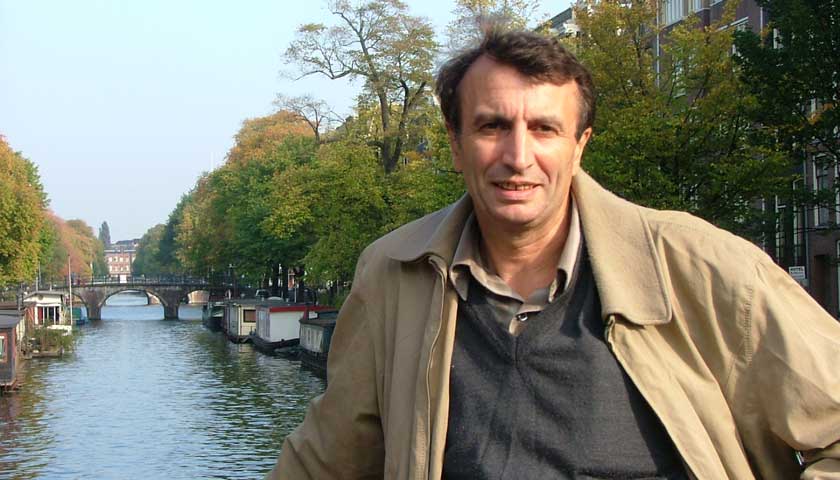
Yakov Krasik, professor at the Technion
For the first month, schools and kindergartens were closed, but then it became clear that it was impossible to keep children at home, parents began to go to work, and children began to get used to the sirens. Elena Bunina’s son goes to school, and her daughter goes to kindergarten. “My children are experiencing the bombings quite calmly — compared to other children I hear about. Tel Aviv is often bombed.
In the first days they were very scared, but now they are used to it, they go to the bomb shelter with discipline, and you can even take the youngest one there when she is sleeping.
True, my schoolboy son’s educational process was very disrupted: some of the teachers went to war, so he only studies a few times a week for five lessons, which is logistically difficult, of course. But our difficulties are incomparable with those families where children completely left their schools and moved to other cities due to hostilities. I’m not even talking about Ukrainian families who took their children away from one war and ended up in another.”
Schools in different parts of the country operate in different modes. In some places classes are ongoing, in others they can only be held in secure rooms, and in others they have gone online. Israel has long experienced a serious teacher shortage; even before the war, it was one of the countries with high class sizes of up to 40 people. Now, due to the mobilization of teachers, previously overcrowded classes are filled with children beyond the norm.
Refugees. “Evacuate everyone who does not have access to shelter”
During the first weeks of the war, the government could not decide what to do with civilians in the combat zone, so volunteers carried residents out from under shelling.
“Evacuation is not an economic problem.problem. The state has money to take people out of the danger zone. A political solution is necessary,” demanded the mayor of Sderot (a city located on the border with Gaza) in the Knesset. However, the Minister of Finance vetoed the allocation of money for the evacuation of residents of cities that were partially destroyed, but were not legally classified as border areas with Gaza. Things moved forward only after the mayor of Ashkelon (another city near Gaza) yelled at the Knesset Minister: “For seven years I have been shouting: “Kibenimat!” (Russian curse in Hebrew). Include Ashkelon in the Gaza border zone! Evacuate anyone who does not have access to shelter. I’m talking about those who have no money for shelter and no money for evacuation. What answers do you have for these people other than praying that they don’t die…?
Ashkelon has become a ghost town, shops and other businesses are closed, losses from military operations amount to hundreds of millions of shekels, the Ministry of Defense gave the go-ahead for the transfer of funds, but the Ministry of Finance vetoed it.
And explain to me what to do if the evacuation of the city has to cost 300 million shekels?” As a result, the decision to evacuate was made, more than 135 thousand Israelis from the north and south were taken out from under shelling. Most of them were placed in hotels, which are still empty — there are few people wishing to relax in Israel today.
The state pays the hotels, but it’s free for refugees. But most hotels are not suitable for long-term stays of families with children, since there are no schools or kindergartens nearby. And those that exist are not able to accept such a number of new students at the same time. Therefore, many refugees try to go and live with those relatives or friends where they can get help and negotiate temporary admission of a child to a kindergarten or school. However, this temporary solution does not answer the question: what will happen to these people next? The government has not yet proposed any solutions for the displaced.
Business. “We are left alone with the war”
Pavel Popelyukhin is 44 years old, 18 of which he has been working in the Israeli office of an American IT company and every six months he goes to miluim for military training for two to three weeks. He returned from the last miluim in September, and two weeks after the start of the war he again found himself in the army. Of his company’s 300 people, about 15 of them are now in combat units. “In our company, we have no problems with paying reservists; they keep our salaries in full, because high-tech is a special world. But in other companies, employers began paying my co-workers the minimum wage. They simply don’t have the money to maintain wages for those who don’t work for the third month. People are freaking out: not only have they not seen home for three months, with the exception of rare weekends every two or three weeks, but they also cannot provide for their families. The nerves of the family can’t stand it, some families are starting to fall apart.”
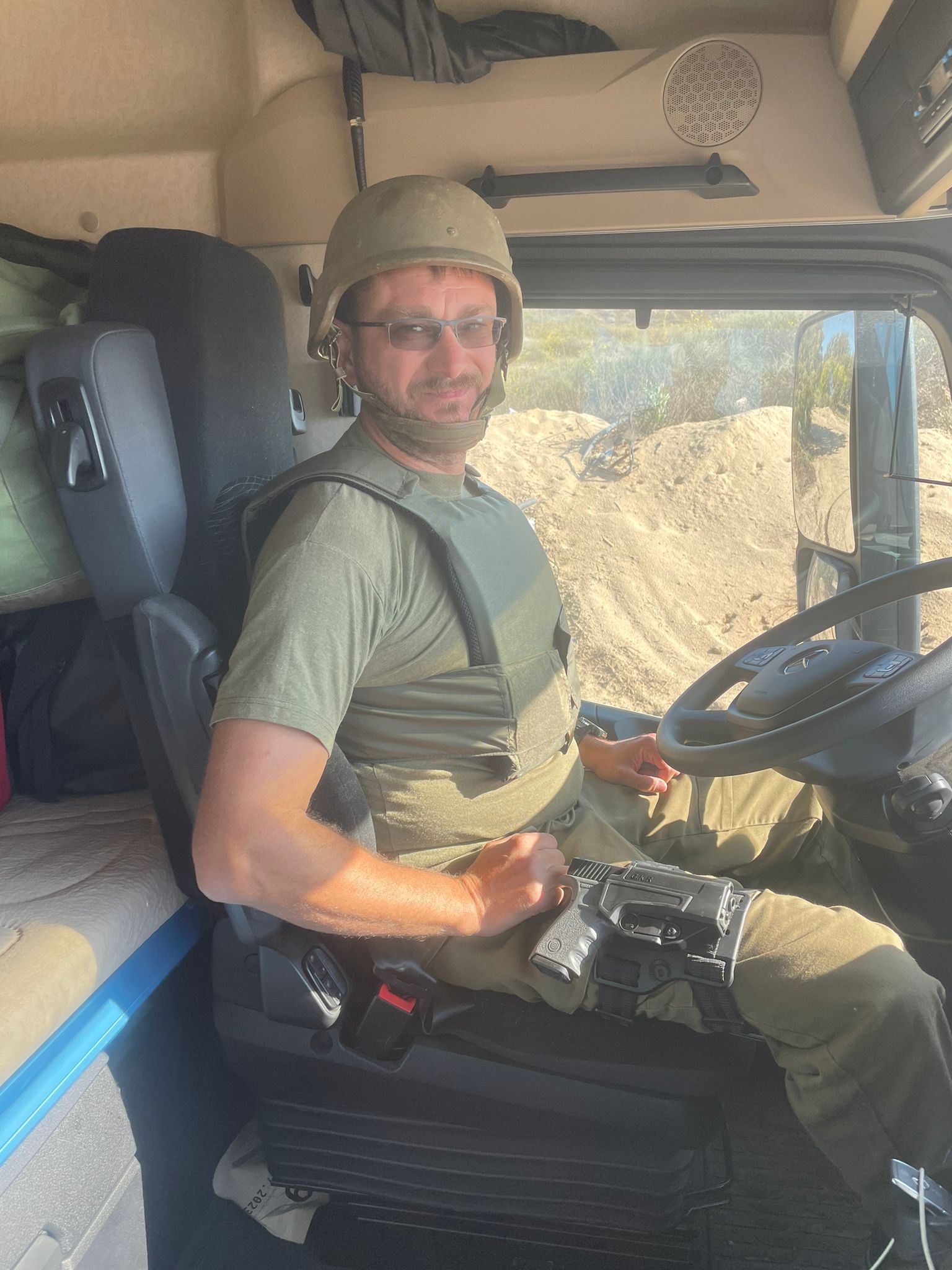
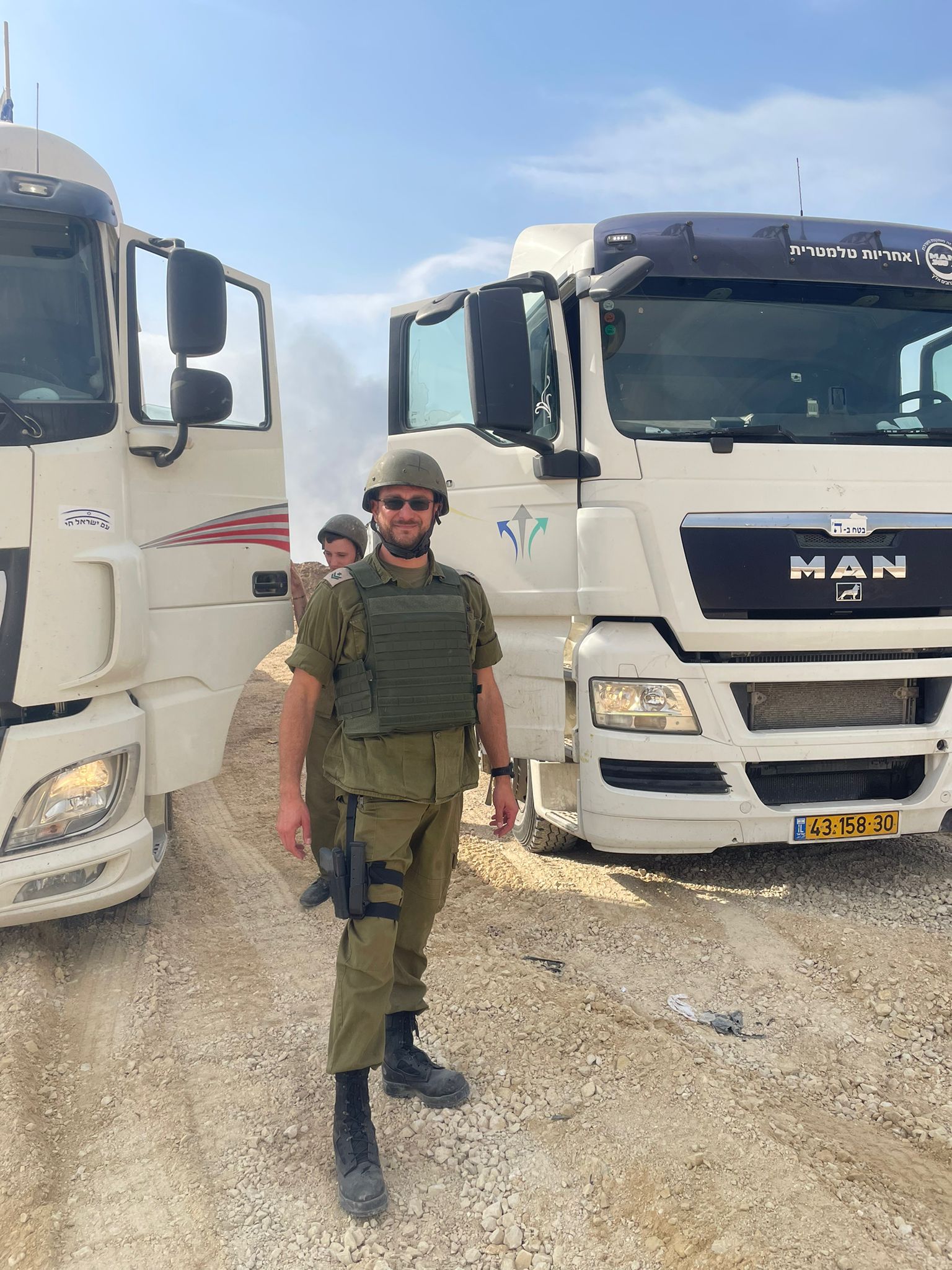
Pavel Popelyukhin is an IT specialist in civilian life, and a truck driver in military life
Usually in Israel the number of businesses is growing, but this year there will be fewer 20 thousand less. In the first weeks of the war, almost all cafes and most shops in shopping centers were closed. Some of them never opened.
Ekaterina Biryukova and her husband Alexey are engaged in landscape design — they improve areas, balconies, etc. Since the start of the war they have no new clients. Only the old ones remain, who pay a subscription to care for the already registered territory. However, this income does not even provide the family with the mortgage payment, not to mention the usual standard of living: “Now I have a choice: go to the hairdresser or add 200 shekels to the mashkanta (mortgage). And the same situation is with my friends, artists and designers. True, our clients are very supportive of us: for example, we are afraid to travel to the center of the country, to areas where there is frequent shelling. But our clients from those areas still pay for the subscription. Because people try to help each other.”
To help colleagues suffering losses, a well-known entrepreneur in Israel, the owner of the Yoffi company, Arkady Mayofis, organized the “Support Your Own” campaign: become free publish advertisements for various businesses in your accounts This helped many entrepreneurs not go bankrupt in the first months of the war .

Arkady Mayofis supported small businesses with advertising in difficult times
Until October 2023, Marina Badashina was such a famous manicurist in Haifa that she no longer took on new clients. You had to make an appointment with her several months in advance. In the first month of the war, she lost half of her clients: “Tens of thousands of people were left without work or went on unpaid leave. Manicure is not a matter of first necessity, it is not food or medicine. We work for beauty and joy. But people don’t have any joy now, but they still have kindergartens and apartments that they have to pay for.”
Marina works as a volunteer in the children’s oncology department of the Rambam hospital, and also gives free medical pedicures to soldiers (their problems are broken feet, calluses, ingrown nails, fungal infections). All this does not bring money. “My colleagues have a similar situation. A master works next to me, to whom clients have been going for generations for 40 years. I had never seen him sit idle for hours before. On the other side of me is the office of one of the best colorists in Haifa. All her clients disappeared altogether. She tried to record videos and increase advertising on social networks. But this doesn’t help. When there’s war, you don’t go dye your hair. You simply have no time for it. My friends who sell clothes from Italy and Turkey are in an even more difficult situation. All logistics have been disrupted and it is impossible to deliver goods. And sales of the remaining goods since the beginning of the war do not even cover the cost of renting a store. That’s why a lot of stores closed after two months.”
It is believed that the Israelis are accustomed to wars. But Marina, who came to Israel 13 years ago from Kyiv, says that this is the first time she has had such a terrible experience: “Yes, we know what the arrivals, sirens, and rocket crashes are. We can distinguish by sound what exactly is flying in the sky. Nevertheless, psychologically we always felt protected.
We have always known that there is a state and there is an enemy. And my state will always protect me. And now I sit and think: what can I do for my own safety? We know that terrorists have infiltrated all areas, I feel that they are in the country, and I do not rely on anyone anymore.
I bought gas cans for myself and my mother. I try to avoid white pickup trucks — these are the cars in which the terrorists drove from Gaza. I also keep several protective equipment in my office. I am ready to resist at any moment. We were left alone with the war. And no one will protect Israel except ourselves.”
According to data National Institute for Health Policy after October 7, the number of Israelis suffering from anxiety disorders increased by 50%, and cases of acute stress reactions increased by 900%.
But not everyone can handle the stress on the home front. Some veteran reservists who cannot fight with new tanks decided to restore decommissioned old tanks. Theycreated their own battalion,named its Of Ha-Chol (Phoenix bird) and went to the front.
“After October 7, a miracle happened to us,” notes Pavel Popelyukhin, whose combat specialty in the army is the transportation of heavy equipment, “Jews, Bedouins, Druze, Israeli Arabs, Muslims and Christians gathered and went together to defend themselves even before the army and government woke up.People around meleft everything to take part in the evacuation and hostilities. For usit was a shock how many Israelis who left the country a long time ago returnedback to Israel. Somego straight to the front. Grief has brought the country together and changed the way we look at how we live here. After all, we serve ourselves, but we cannot understand why October 7 became possible, how did ithappen?.. Israel itself is surprised at itself.”
Oxonters. “Of course we will win the war”
The war has taken a toll on rural areas in the south and north of Israel, where farms raising animals, poultry, fruits and vegetables are located. There were many Palestinian and Thai workers there. Israel expelled Palestinians, many Thais left by themselves. Therefore, in the very first weeks of the war, farmers turned to volunteers from the central part of the country for help. Since then, for the third month, every Shabbat, engineers, teachers, musicians, drivers, pensioners, retired generals and ministers, instead of resting, travel along difficult routes to the southern and northern regions to help farmers.
The famous American biologist Eugene Koonin regularly comes to Israel to visit his mother. Each of his visits is an event for colleagues, he is invited to speak at seminars and give lectures.
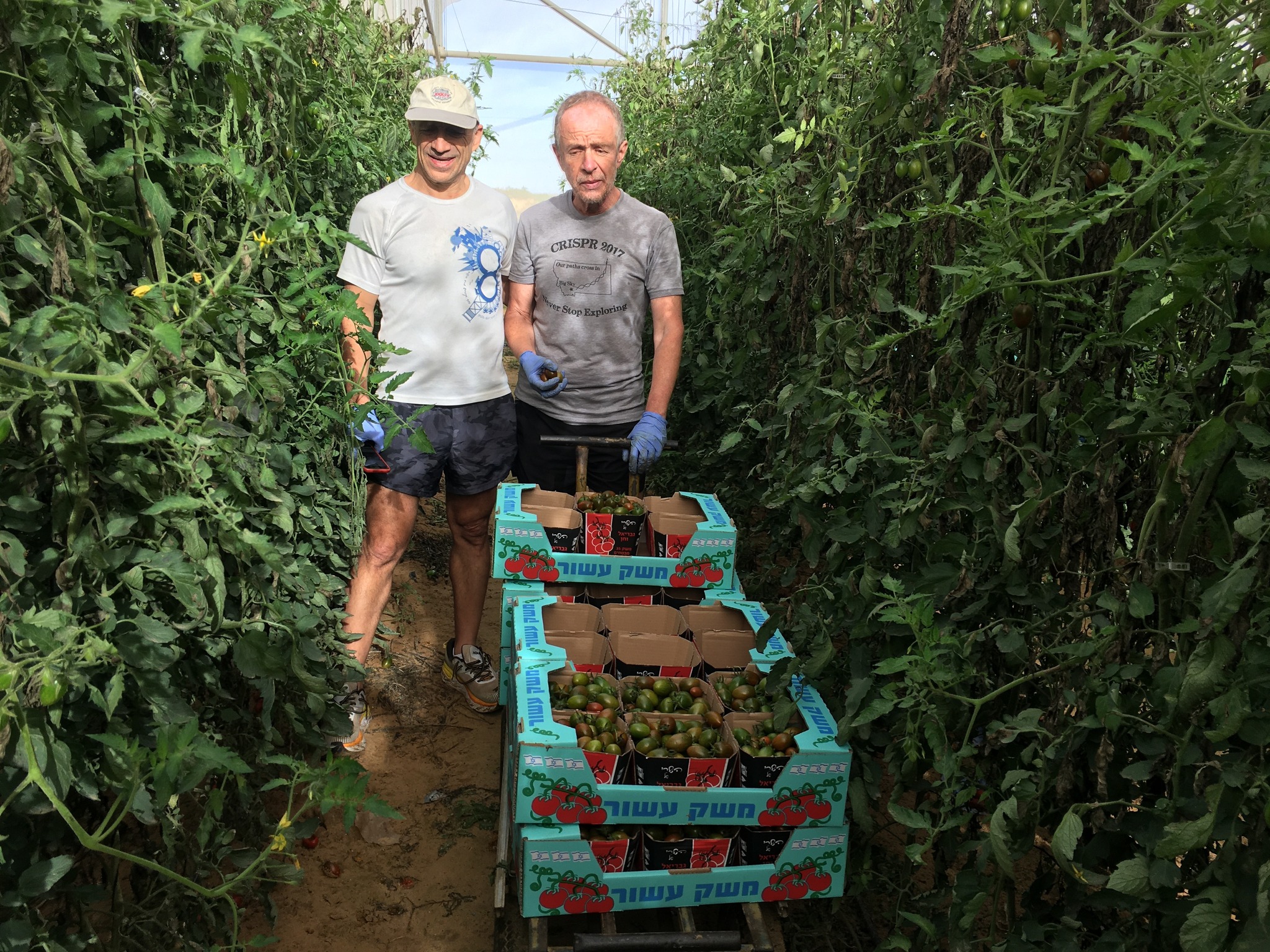
Leading researcher at the National Center for Biotechnology Information of the National Library of Medicine of the US National Institutes of Health Eugene Koonin (right) helps Israeli farmers
This time, after the lecture, he went on Saturday together with other university employees to pick tomatoes: “Only at first glance, this is reminiscent of potato-picking trips to the USSR. There it was caused by disgusting Soviet management in agriculture, and in Israel it is voluntary civil solidarity and strict necessity. If the harvest is lost, people will have nothing to eat.”
There, in the greenhouses, you can regularly meet former Defense Minister Moshe Bugi Ya’alon, actors and many other famous Israeli figures.
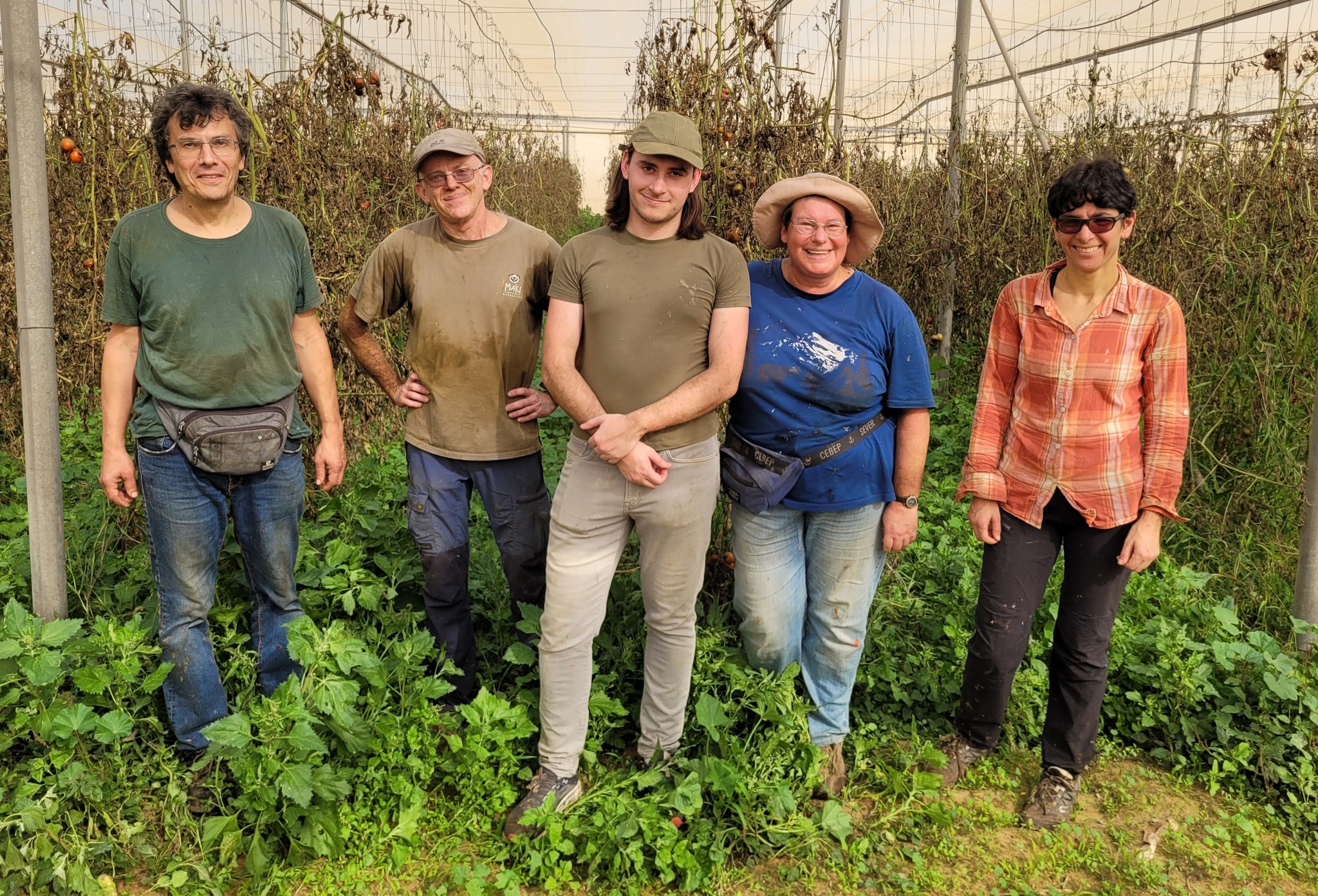
New and old repatriates on agricultural work: biologist Alexander Markov, engineer Yan Rybak, biology student Fyodor Voitinsky, biologist Alexandra Goryashko, music teacher Yana Yut
Logistics and delivery of people to farms were taken over by volunteer organizations, whose role today is enormous.
Israel had no previous experience of instantly mobilizing such a number of reservists. Therefore, volunteers were often involved in providing soldiers with uniforms, food, and delivery to military units in a matter of days.
Jan Rybak, an engineer at the design company, took a leave of absence immediately after October 7 and began delivering aid to the soldiers. “At the request of my friends, I carried everything under the sun, from T-shirts and shorts to military equipment. He delivered everything that relatives of soldiers from abroad sent by DHL mail — medicines, things. Then he began to collaborate with the volunteer center that the “Israel Our Home” party set up in Haifa. This is the only Russian party in Israel. They collect donations and purchase what the combat units ask for.”
At first, Jan traveled only to the south, but within a week, fighting began in the north, on the border with Lebanon. “That’s where I really felt what the proximity of the front was like. Just that day, Hezbollah fired anti-tank missiles at populated areas, killing a person in the morning. When I arrived, they didn’t even want to let me in. We deliberated for a long time, called, but in the end they let us through. They said: “Go, but don’t stop anywhere.” I reached the village where I was supposed to hand over the food I had brought to the military, and there too: “Don’t stand here – this place is under fire from that hill.” When I was about to leave, I asked for a ride from a soldier who had been given leave. While I was waiting for him, explosions began — everyone rushed to the shelter. In general, it’s more scary to travel north now than to travel south.”
Jan has lived in Israel since 1991. He remembers countless conflicts with Gaza, with Hamas, and the Second Lebanon War. When asked whether volunteers have always been massively involved in providing for reservists, he answers sharply: “No. But there was no such war as now. Not only in my memory, but never in the history of Israel after the War of Independence. How is this war different from all previous ones? The Yom Kippur War is considered one of the worst Israeli wars; two and a half thousand Israelis died in it. But these were military, civilianThere were almost no losses. We have never seen more than 250 people taken hostage. Their exact number is still unknown: there are people who have disappeared, and we don’t know whether they are hostages or dead. The murders were committed with such inhuman cruelty that all the remains found have not yet been identified. In this regard, although the Yom Kippur War was difficult and traumatic for Israel, no one at that moment thought that Israel could cease to exist, and the war that is happening now is the second war after the War of Independence of 1948, in which It’s about the survival of the state. There is a war for existence in Israel.
If Israel loses this war, it will be the beginning of a painful end for us that will last two, three, maybe four decades. But this will be the beginning of the end. The fact is that the Arabs have not set their goal to capture Israel for a long time. They understand perfectly well: no Arab militia, even like Hezbollah, is capable of occupying Israel. They are just trying to survive us, they are trying to make people’s lives unbearable. The expectation is that an ordinary Israeli will at some point say: “Well, how much is possible? Why do I need this? There will be no end to this. I want my children to live in calm conditions, so that they are not threatened by missiles.” Since 2005, since Israel completely withdrew from Gaza, an entire generation has grown up under the constant threat of rocket attacks in the south. They have 20 seconds there to run to the shelter. But why was Israel created? Israel was created after World War II as a refuge: Jews would have a home in which no one could ever repeat the Holocaust, no one could kill Jews with impunity.
What we have seen over the past 20 years in Israel is not what this country was created for. Not so that Jews in their country run around bomb shelters. And now the biggest tragedy since the Holocaust has happened.
And, accordingly, the force of the reaction is proportional to the force of the blow: the level of solidarity is incomparable to anything that has happened in my memory. Therefore, everything is now permeated with the spirit of volunteerism.”

Volunteer Jan Rybak
“We will, of course, win the war,” promises Arkady Mil-Man, head of the Russian studies program at the Institute for National Security Studies at Tel Aviv University. “Just when exactly is unclear. As they say, how and when I start a war — I know, how and when I finish — I don’t know. And then the most terrible internal struggle will begin, because the war raised the question for Israel: to be or not to be? We approached October 7 with a complete split in society, with enormous discontent among people who are in various positions in the state apparatus and in the army. Therefore, Israel, if it wants to survive, must begin the battle for the future the day after the war. Either we will live in the Middle Ages, like many of our neighbors, or we will be a major league state. One thing is certain: Israel before October 7 and Israel after October 7 will be two different countries.”
Text: Olga Orlova
Olga Orlova 9.01.2024

